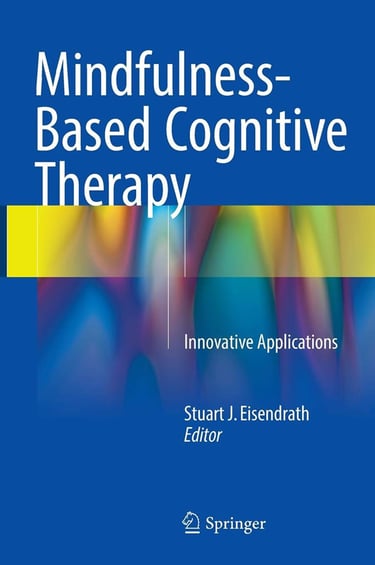MBCT - What does the research say about mindfulness-meditation?
Mindfulness-Based Cognitive Therapy (MBCT)
10/17/20242 min read


Mindfulness-Based Cognitive Therapy (MBCT) is a research based course designed by leaders in the psychology field, including Jon Kabat-Zinn. It is an 8-wk structured course, with daily meditation homework, and a group meeting once per week in person or over video. Over the years MBCT has been aggressively researched to repeatedly show positive results for many stress-related disorders and diseases. Look below to see the areas researched and if they may apply to your current situation.
As detailed in this recent publication by researcher Stuart J. Eisendrath, learning and practicing the MBCT protocol trains the mind to let go of unwanted thoughts, feelings, and sensations by anchoring the mind in the present moment, with awareness, through a dedicated practice. This in turn stops the inner feeling of dis-ease and helps with many acute and chronic diseases.
Below are some examples of studies using MBCT for various disorders:
* The Application of Mindfulness-Based Cognitive Therapy for Chronic Pain Melissa A. Day Pages 65-74
* Mindfulness-Based Cognitive Therapy for Couples Kim Griffiths, Marcus Averbeck Pages 123-131
* Mindfulness-Based Cognitive Therapy for Generalized Anxiety Disorder Susan Evans Pages 145-154
Source: springer.com

